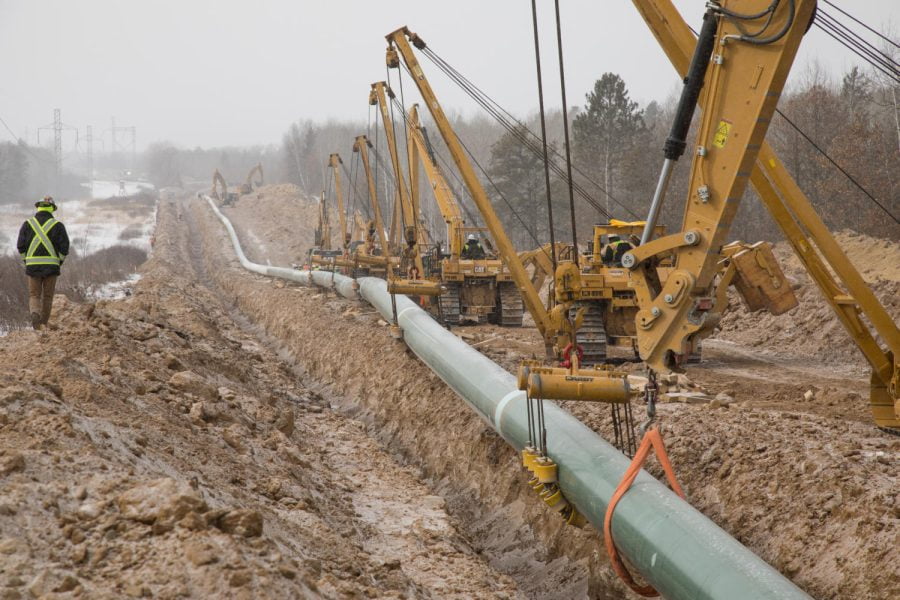Line 3: Controversial Tar Sands Pipeline
Oil has been the topic of hot debate- how we as a society treat it, and how we use it. Recent social movements have been trying to diminish the immense need for fossil fuel (and replace it with green energy,) and the massive industry behind it.
Natural gas transportation is one of the huge problems within the fossil fuel industry- and is responsible for countless spills into the natural environment. Indigenous communities around the world have been protecting the land from these sorts of pollutants- as evidenced by a recent replacement project: Line 3 by Enbridge Inc, a multinational pipeline company headquartered in Alberta, Canada. This project is a 1,097 mile (1765.4504 km) long crude oil pipeline that runs from Edmonton, Canada or Superior, Wisconsin. This pipeline is projected to transport 915,000 barrels of tar sands crude oil when it is completed.
Tar sands crude oil is one of the most destructive types of oil- it produces three times as much pollution as conventional crude oil. Using, and potentially spilling, this dangerous type of oil will propel the climate situation to progress faster- and only make things worse.
This pipeline also goes against treaties signed by the US government and the Anishinaabe tribe of the region, also known as Ojibwe and Chippewa. These treaties were signed in 1825, 1830, 1837, 1847, 1854, 1855, 1863, 1864, 1866 and 1867. These agreements consisted of reserving land for reservations and gave the native people rights to use the land to cultivate and live off of. The already existing Line 3, as argued by the Anishinaabe, violates the l855, 1854, and l842 treaty areas and crosses Leech Lake and Fond du Lac reservations. The older Line 3 also has a myriad of issues, being built in 1961 with defective steel.
There is also a human trafficking concern with the construction of the new Line 3. Human trafficking and kidnapping seems to be a huge issue that targets indigenous people, especially women. Two workers from Line 3 were arrested in a human trafficking sting that was conducted in an operation on June 25 to 26 of this year.
After a while of fierce backlash online and at the construction sites, protests reached the Minesoda state capitol. Many people against the pipeline have been calling for Biden to revoke Embridge’s rights. They claim that this goes against the Green New Deal that Biden reintroduced when he was elected president. U.S. Representatives Ilhan Omar and Betty McCollum and other federal officials and lawmakers have called for an urgent intervention from the president in the form of a penned letter with 63 total signatures.
Biden still has not responded and the pipeline does not have a date to begin operation as of publishing. However, sending letters to the administration might help speed up the process of the cancellation- and there are many places to donate to help the protesters on the front lines. It’s all up to us.



